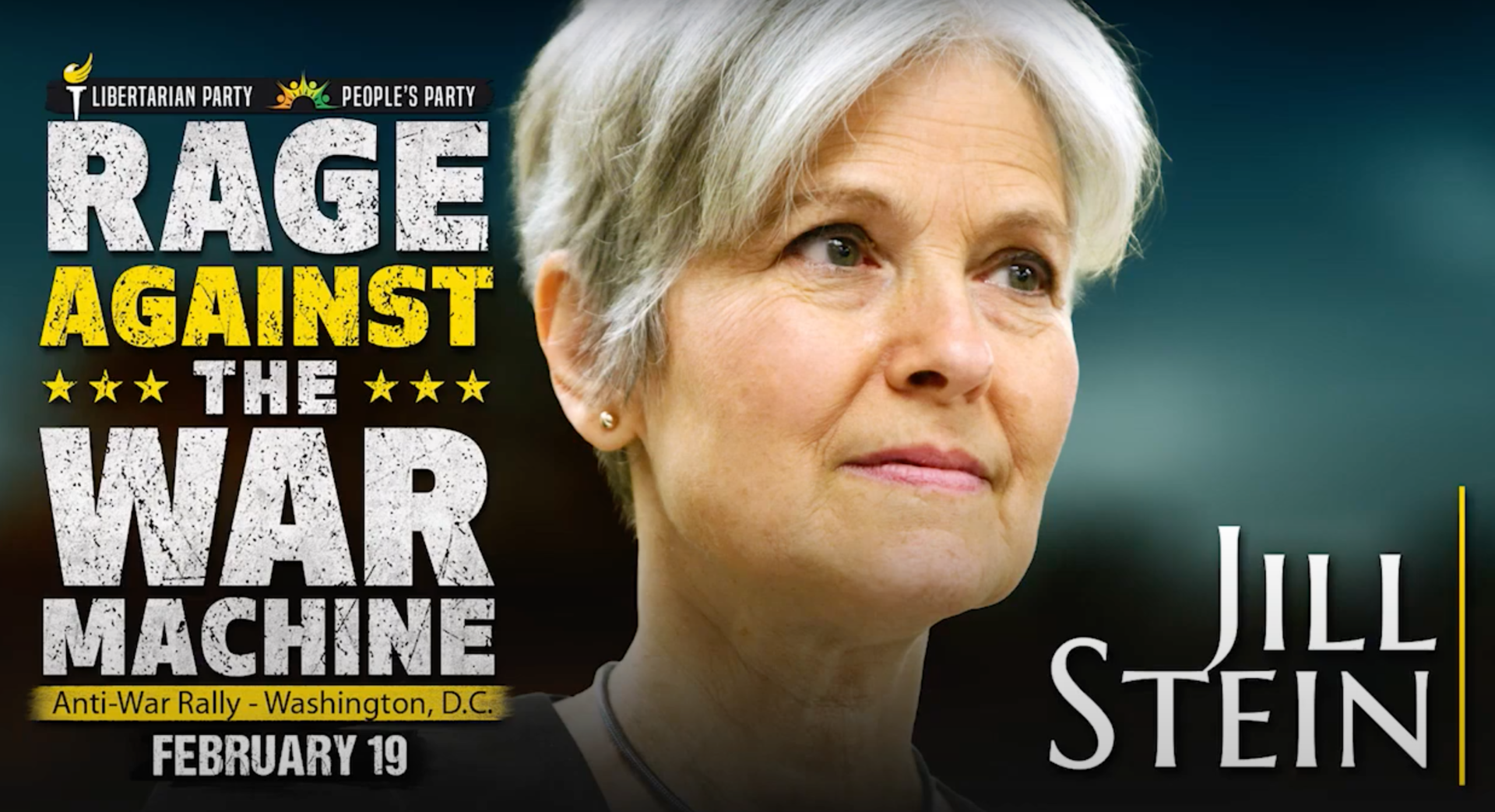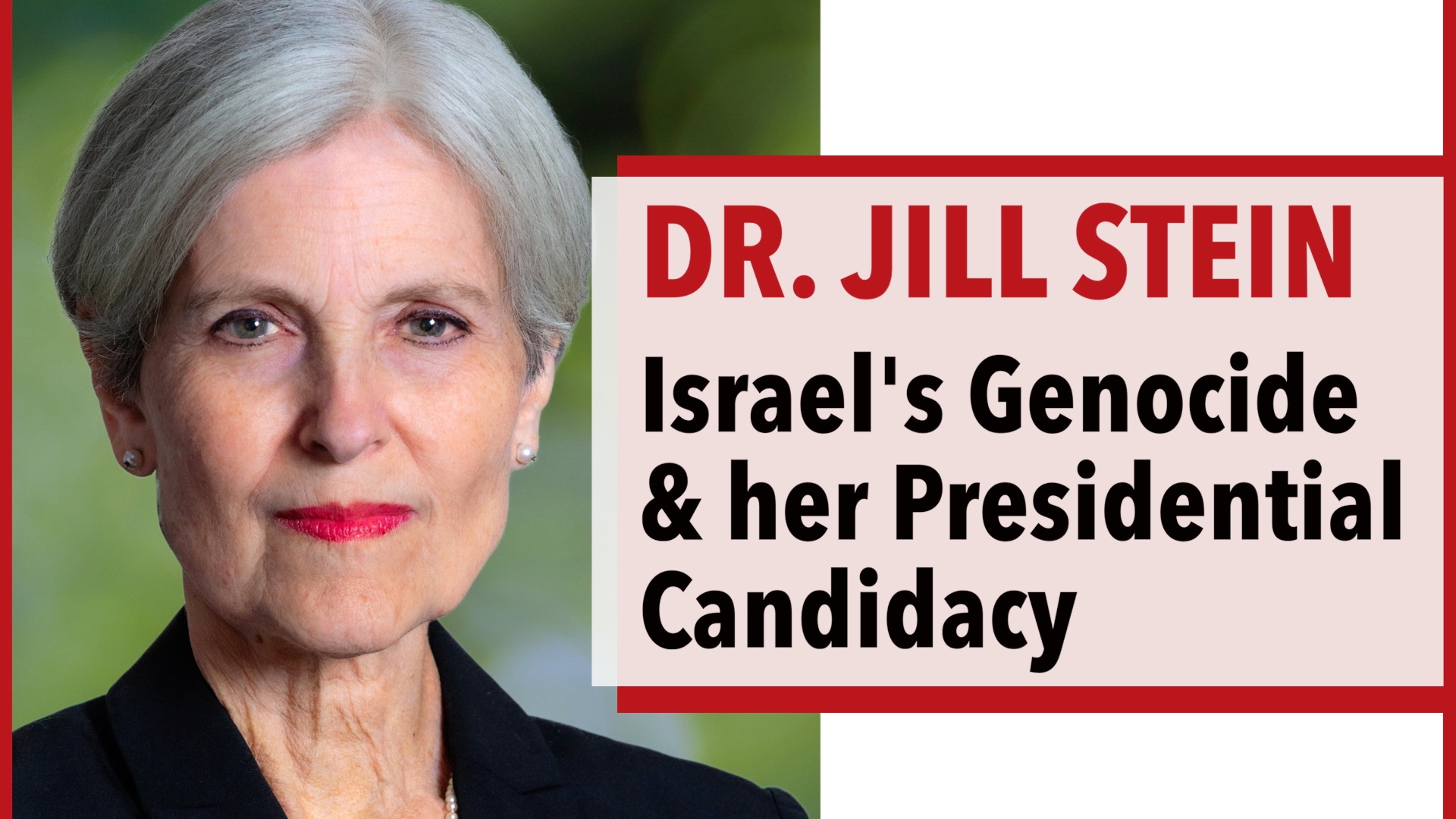Jill Stein, the prominent political figure and environmental advocate, has often found herself at the center of discussions regarding her views on various global issues, including Zionism. Her perspectives on Zionism have sparked debates among her supporters and critics alike. As a Green Party candidate, Stein's approach to foreign policy and her stance on Israel-Palestine relations have been closely scrutinized. This article will delve into her views on Zionism, exploring the nuances of her political ideology and its implications.
Jill Stein's career has been marked by her commitment to social justice, environmental sustainability, and progressive politics. Her outspoken nature has made her a polarizing figure, particularly when discussing topics such as Zionism. Understanding her position on this sensitive issue requires examining her broader political philosophy and the context in which she operates.
This article aims to provide a detailed analysis of Jill Stein's stance on Zionism, exploring her arguments, the historical backdrop, and the impact of her views on her political career. By the end of this piece, readers will have a comprehensive understanding of Stein's perspective and its significance in the global discourse on Israel-Palestine relations.
Read also:Norton City Schools A Comprehensive Guide To Quality Education
Table of Contents
- Biography of Jill Stein
- Understanding Zionism
- Jill Stein's Perspective on Zionism
- Historical Context of Zionism
- Criticism of Stein's Views
- Support for Stein's Stance
- Policy Implications
- Impact on Stein's Political Career
- Global Reactions
- Conclusion
Biography of Jill Stein
Data and Information About Jill Stein
Jill Stein is an American physician, environmental activist, and politician. She has played a significant role in the American political landscape, particularly as a member of the Green Party. Below is a summary of her key details:
| Full Name | Jill Isabelle Stein |
|---|---|
| Date of Birth | June 17, 1950 |
| Place of Birth | Hartford, Connecticut, USA |
| Profession | Physician, Environmental Activist, Politician |
| Political Affiliation | Green Party |
| Notable Roles | Presidential Candidate (2012, 2016) |
Stein's career has been defined by her dedication to advocating for environmental justice and social equality. Her work in the medical field and her activism have shaped her political ideology, which often includes critical perspectives on foreign policy issues.
Understanding Zionism
Zionism refers to the national movement that supports the establishment and preservation of a Jewish homeland in the Land of Israel. This movement has its roots in the late 19th century and has evolved significantly over the years. Zionism encompasses a wide range of ideologies, from religious to secular, and its interpretation varies among different groups.
Key aspects of Zionism include:
- The establishment of Israel as a Jewish state.
- Advocacy for the rights of Jewish people to self-determination.
- A focus on cultural and historical ties to the region.
Understanding Zionism is crucial when analyzing Jill Stein's stance, as her views often challenge traditional interpretations of the movement.
Jill Stein's Perspective on Zionism
Jill Stein's stance on Zionism is rooted in her commitment to peace, justice, and human rights. She has consistently criticized the Israeli government's policies towards Palestinians, arguing that they violate international law and human rights principles. Stein advocates for a two-state solution that ensures equal rights for both Israelis and Palestinians.
Read also:Gen X Meme A Comprehensive Guide To Understanding The Cultural Phenomenon
Key Points in Stein's Argument
- Support for Palestinian self-determination and sovereignty.
- Criticism of Israeli military actions and occupation policies.
- Advocacy for international accountability and adherence to UN resolutions.
Stein's perspective aligns with the Green Party's platform, which emphasizes nonviolence, disarmament, and global cooperation.
Historical Context of Zionism
To fully grasp Jill Stein's views, it is essential to examine the historical context of Zionism. The movement emerged in response to rising anti-Semitism in Europe during the late 19th century. Key figures such as Theodor Herzl played pivotal roles in shaping the movement's early goals.
Throughout the 20th century, Zionism evolved, culminating in the establishment of the State of Israel in 1948. However, this event also marked the beginning of ongoing conflicts with neighboring Arab states and the Palestinian population. The complexities of this history inform Stein's critiques of contemporary Israeli policies.
Criticism of Stein's Views
Jill Stein's stance on Zionism has drawn criticism from various quarters. Pro-Israel advocates argue that her criticisms of Israel are one-sided and fail to acknowledge the security challenges faced by the country. Critics also question her understanding of the region's intricacies and accuse her of promoting anti-Semitic rhetoric.
However, Stein counters these criticisms by emphasizing her commitment to human rights and peace. She argues that holding Israel accountable for its actions is not anti-Semitic but rather a necessary step towards achieving justice for all parties involved.
Support for Stein's Stance
Despite the criticism, many individuals and organizations support Jill Stein's perspective on Zionism. Progressive groups, human rights activists, and Palestinian solidarity movements commend her for advocating for equal rights and justice. They view her stance as a crucial step towards resolving the Israel-Palestine conflict.
Supporters highlight Stein's consistency in addressing global injustices and her willingness to challenge powerful interests in pursuit of peace.
Policy Implications
Jill Stein's views on Zionism have significant policy implications. As a Green Party candidate, she has proposed foreign policy initiatives that prioritize diplomacy, disarmament, and human rights. These policies include:
- Cutting military aid to Israel until it complies with international law.
- Encouraging dialogue and negotiation between Israel and Palestine.
- Supporting international efforts to enforce UN resolutions.
Stein's proposals reflect her belief in peaceful conflict resolution and equitable treatment for all parties involved.
Impact on Stein's Political Career
Jill Stein's stance on Zionism has had a profound impact on her political career. While it has garnered her support from progressive circles, it has also alienated potential allies and voters who hold opposing views. Her outspoken nature has made her a target of criticism and scrutiny, particularly during her presidential campaigns.
Despite these challenges, Stein remains committed to her principles, viewing her position on Zionism as an integral part of her broader political vision.
Global Reactions
The global reaction to Jill Stein's stance on Zionism is mixed. In some regions, her views resonate with populations that sympathize with Palestinian struggles. In others, her criticisms of Israel are met with resistance and opposition. The diversity of reactions underscores the complexity of the Israel-Palestine conflict and the challenges of addressing it diplomatically.
Stein's ability to engage in global discussions highlights her role as a prominent voice in the debate over Zionism and its implications for international relations.
Conclusion
Jill Stein's stance on Zionism reflects her commitment to peace, justice, and human rights. Her criticisms of Israeli policies and advocacy for Palestinian self-determination have sparked intense debates, drawing both support and criticism. By examining the historical context, policy implications, and global reactions, this article has provided a comprehensive analysis of Stein's perspective.
We invite readers to share their thoughts and engage in constructive dialogue about this critical issue. For more insights into Jill Stein's political career and her views on other topics, explore our additional resources and articles.
References:
- Stein, J. (2020). A Future to Hope For: The Green New Deal and the Fight for a Better World.
- United Nations. (2023). Resolution 181: Partition Plan for Palestine.
- Human Rights Watch. (2022). Israel-Palestine: Key Human Rights Concerns.


